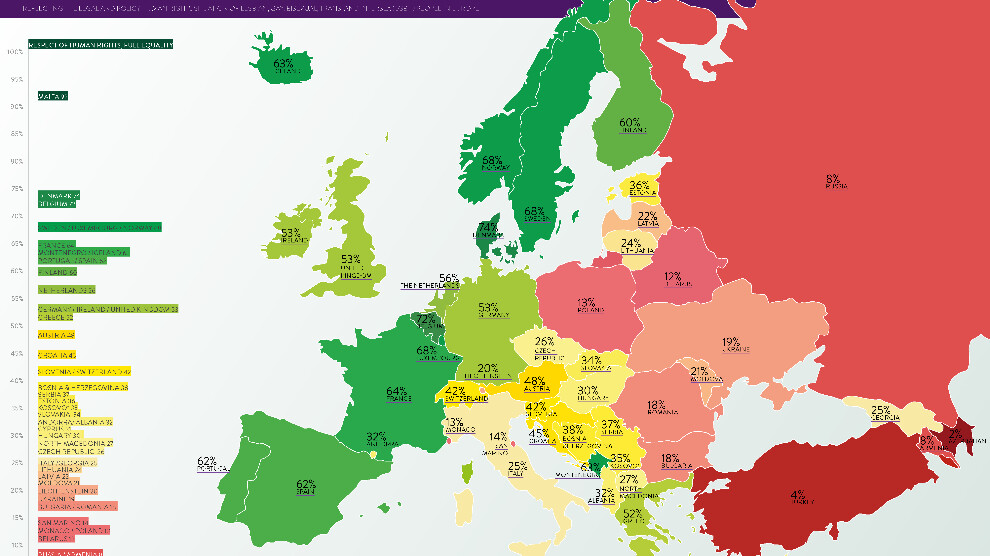Turkey second worst country in Europe for LGBT+s rights, says ILGA
Turkey has ranked 48th out of 49 countries in the "Rainbow Index" of the European Region of the International Lesbian, Gay, Bisexual, Trans, and Intersex Association (ILGA).
Turkey has ranked 48th out of 49 countries in the "Rainbow Index" of the European Region of the International Lesbian, Gay, Bisexual, Trans, and Intersex Association (ILGA).

ILGA-Europe is an independent, international non-governmental umbrella group bringing together over 600 organizations and has been publishing its annual report each year since 2009.
Turkey has ranked 48th out of 49 countries in the "Rainbow Index" of the European Region of the International Lesbian, Gay, Bisexual, Trans, and Intersex Association (ILGA).
The report examined the advances made and provided concrete examples of on-the-ground situations at the national level country-by-country from January to December 2021.
For the last four years, Turkey ranks 48th, i.e. second worst on ILGA Europe's Rainbow Index.
Other notable changes in 2021 see Denmark jumping seven places to achieve second place in the 2022 ranking. The reason for Denmark’s jump is that it is taking the lead in filling in anti-discrimination gaps in current legislation, including the equal treatment law, which covers health, education, employment, provision of goods and services, and the penal code to include sexual orientation, gender identity, gender expression and sex characteristics (SOGIESC) as aggravating factors in hate crime.
More countries are pushing forward for equality by giving due recognition and protection for people’s lived realities. Iceland was awarded points because of its legislative recognition of trans parenthood, among other things, while Germany introduced a ban on intersex genital mutilation and France banned so-called ‘conversion therapy’ based on sexual orientation and gender identity.
After years of being stalled there is positive legislative movement in Greece, Latvia, Lithuania, Serbia, Slovakia, and Slovenia, countering the narrative that there is an East/West divide on LGBTI rights in Europe, providing governments in these countries with strong opportunities to underpin democracy through adoption and implementation.